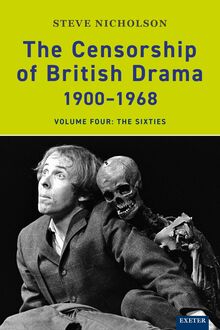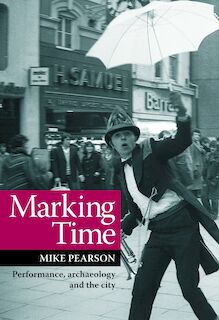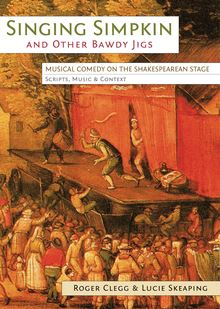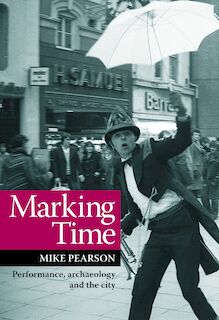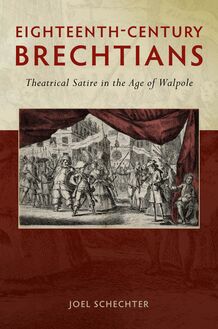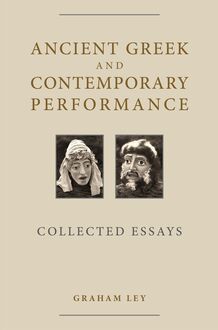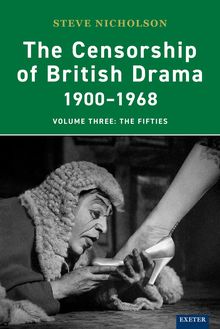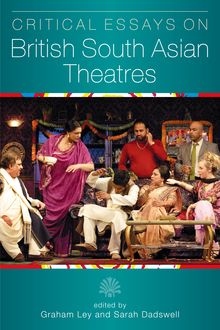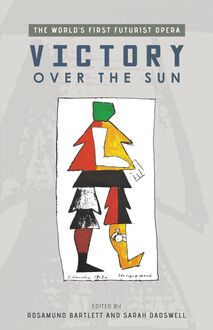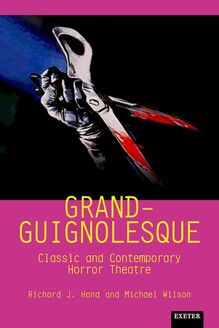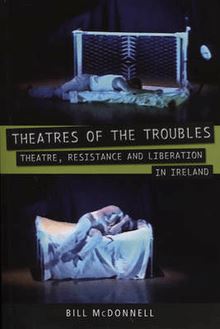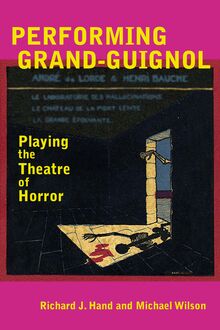Eighteenth-Century Brechtians , livre ebook
190
pages
English
Ebooks
2018
Vous pourrez modifier la taille du texte de cet ouvrage
Obtenez un accès à la bibliothèque pour le consulter en ligne En savoir plus
Découvre YouScribe et accède à tout notre catalogue !
Découvre YouScribe et accède à tout notre catalogue !
190
pages
English
Ebooks
2018
Vous pourrez modifier la taille du texte de cet ouvrage
Obtenez un accès à la bibliothèque pour le consulter en ligne En savoir plus
Publié par
Date de parution
31 juillet 2018
Nombre de lectures
2
EAN13
9780859892155
Langue
English
Discussing the actor mutiny of 1733, theatre censorship, controversial plays and Fielding’s forgery of an actor’s biography, the book contends that some subversive Augustan and Georgian artists were early Brechtians. Reconstructions of lost episodes in theatre history include a recounting of Fielding’s last days as a stage satirist before his Little Haymarket theatre was closed, Charlotte Charke’s performances as Macheath and Polly Peachum in The Beggar’s Opera and the 1740 staging of Jonathan Swift’s Polite Conversation on a double bill with Shakespeare’s Merry Wives . . .
Some documents in this collection offer another perspective on theatre history by employing fiction – speculative reconstructions of Georgian theatre events for which historical facts are scarce or missing. Brecht also employed fiction to reconsider history in short stories he wrote about Lucullus and Socrates, and a novel about Julius Caesar. The stories and several new letters attributed to Fielding delve into theatre history and keep some of its controversy alive in new ways, historicizing fiction and theatre somewhat as Brecht did.
It offers an unconventional, new reading of theatre history, Brecht’s tradition and stage satire.
The Cast of Brechtians in Order of Appearance
List of Illustrations
Foreword by Peter Thomson
Introduction
Eighteenth-Century Brechtians
Cross-Dressing Soldiers and Anti-Militarist Rakes
Polly Peachum and the New Naiveté
Pirates and Polly: A Lost Messingkauf Dialogue
The Duchess of Queensberry Becomes Polly Peachum
Macheath Our Contemporary
Swift in Hollywood: Another Messingkauf Dialogue
Swift’s Polite Conversation with Falstaff
Henry Fielding, Brechtian Before Brecht
Fielding’s London Merchant, and Lillo’s
Literarization of Fielding’s Plays
Tom Thumb Jones, Child Actress
A World on Fire
Fielding’s Cibber Letters: Counterfeit Wit, Scurrility and Cartels
Bertolt Brecht Writes The Beggar’s Opera, Fielding Rewrites Polly
Stage Mutineers
Charlotte Charke’s Tit for Tat; or Comedy and Tragedy at War: A Lost Play Recovered?
Mrs Charke Escapes Hanging
Garrick and Swift’s School for Scandal—With a Digression on Yoko Ono
Brecht Praises Garrick’s Hamlet
A Portrait of the Artists as Beggar’s Opera Disciples—Including David Garrick, Epic Actor
Walpole in America
The Future of Eighteenth-Century Brechtiana: Polly Exonerated
Conclusion: The Future Promise of an Earlier Age
Eighteenth-Century Brechtians: A Timetable of Events
Bibliography
Index
Publié par
Date de parution
31 juillet 2018
EAN13
9780859892155
Langue
English
Eighteenth-Century Brechtians
Eighteenth-Century Brechtians looks at stage satires by John Gay, Henry Fielding, George Farquhar, Charlotte Charke, David Garrick and their contemporaries through the lens of Brecht’s theory and practice. Discussing the actor mutiny of 1733, theatre censorship, controversial plays and Fielding’s forgery of an actor’s autobiography, Joel Schechter contends that some subversive Augustan and Georgian artists were in fact early Brechtians. He also reconstructs lost episodes in theatre history including Fielding’s last days as a stage satirist before his Little Haymarket theatre was closed, Charlotte Charke’s performances as Macheath and Polly Peachum in The Beggar’s Opera , and the 1740 staging of Jonathan Swift’s Polite Conversation on a double bill with Shakespeare’s Merry Wives of Windsor .
Joel Schechter is Professor of Theatre Arts at San Francisco State University, where he teaches courses in theatre history, dramatic literature and popular theatre. His books include Durov’s Pig , Satiric Impersonations , The Pickle Clowns , Radical Yiddish and Messiahs of 1933 . He previously served on the faculty of the Yale School of Drama, where he edited the journal Theater for fifteen years. He also edited the anthology Popular Theatre: A Sourcebook , and has staged a number of plays by Brecht and eighteenth-century satirists.
Peter Thomson , editor of Studies in Theatre and Performance and the Exeter Performance Studies series, has written many books, including On Actors and Acting (UEP, 2000) and The Cambridge Introduction to English Theatre, 1660–1900 . He co-edited The Cambridge Companion to Brecht .
Exeter Performance Studies
Series editors : Peter Thomson, Professor of Drama at the University of Exeter; Graham Ley, Professor of Drama and Theory at the University of Exeter; Steve Nicholson, Professor of Twentieth-Century and Contemporary Theatre at the University of Sheffield.
From Mimesis to Interculturalism : Readings of Theatrical Theory Before and After ‘Modernism’
Graham Ley (1999)
British Theatre and the Red Peril : The Portrayal of Communism 1917–1945
Steve Nicholson (1999)
On Actors and Acting
Peter Thomson (2000)
Grand-Guignol : The French Theatre of Horror
Richard J. Hand and Michael Wilson (2002)
The Censorship of British Drama 1900–1968 : Volume One 1900–1932
Steve Nicholson (2003)
The Censorship of British Drama 1900–1968 : Volume Two 1933–1952
Steve Nicholson (2005)
Freedom’s Pioneer : John McGrath’s Work in Theatre, Film and Television
edited by David Bradby and Susanna Capon (2005)
John McGrath: Plays for England
selected and introduced by Nadine Holdsworth (2005)
Theatre Workshop: Joan Littlewood and the Making of Modern British Theatre
Robert Leach (2006)
Making Theatre in Northern Ireland: Through and Beyond the Troubles
Tom Maguire (2006)
“In Comes I”: Performance, Memory and Landscape
Mike Pearson (2006)
London’s Grand Guignol and the Theatre of Horror
Richard J Hand and Michael Wilson (2007)
Theatres of the Troubles: Theatre, Resistance and Liberation in Ireland, 1980-2000
Bill McDonnell (2008)
The Censorship of British Drama 1900–1968 : Volume Three, The Fifties
Steve Nicholson (2011)
British South Asian Theatres: A Documented History
edited by Graham Ley and Sarah Dadswell (2011)
Critical Essays on British South Asian Theatre
edited by Graham Ley and Sarah Dadswell (2012)
Victory over the Sun: The World’s First Futurist Opera
edited by Rosamund Bartlett and Sarah Dadswell (2012)
Marking Time: Performance, Archaeology and the City
Mike Pearson (2013)
Singing Simpkin and Other Bawdy Jigs: Musical Comedy on the Shakespearean Stage
Roger Clegg and Lucie Skeaping (2014)
Ancient Greek and Contemporary Performance: Collected Essays
Graham Ley (2014)
The Censorship of British Drama 1900–1968: Volume 4, The Sixties
Steve Nicholson (2015)
First published in 2016 by University of Exeter Press Reed Hall, Streatham Drive Exeter EX4 4QR UK www.exeterpress.co.uk
© Joel Schechter 2016
The right of Joel Schechter to be identified as author of this work has been asserted by him in accordance with the Copyright, Designs and Patents Act 1988.
British Library Cataloguing in Publication Data A catalogue record for this book is available from the British Library.
ISBN 978 0 85989 997 0 Hardback ISBN 978 0 85989 335 0 Paperback ISBN 978 0 85989 215 5 ePub ISBN 978 0 85989 208 7 PDF
Typeset in Plantin by Kestrel Data, Exeter
CONTENTS
The Cast of Brechtians in Order of Appearance
List of Illustrations
Foreword by Peter Thomson
Introduction
1 Eighteenth-Century Brechtians
2 Cross-Dressing Soldiers and Anti-Militarist Rakes
3 Polly Peachum and the New Naiveté
4 Pirates and Polly : A Lost Messingkauf Dialogue
5 The Duchess of Queensberry Becomes Polly Peachum
6 Macheath Our Contemporary
7 Swift in Hollywood: Another Messingkauf Dialogue
8 Swift’s Polite Conversation with Falstaff
9 Henry Fielding, Brechtian Before Brecht
10 Fielding’s London Merchant, and Lillo’s
11 Literarization of Fielding’s Plays
12 Tom Thumb Jones, Child Actress
13 A World on Fire
14 Fielding’s Cibber Letters: Counterfeit Wit, Scurrility and Cartels
15 Bertolt Brecht Writes The Beggar’s Opera , Fielding Rewrites Polly
16 Stage Mutineers
17 Charlotte Charke’s Tit for Tat ; or Comedy and Tragedy at War: A Lost Play Recovered?
18 Mrs Charke Escapes Hanging
19 Garrick and Swift’s School for Scandal—With a Digression on Yoko Ono
20 Brecht Praises Garrick’s Hamlet
21 A Portrait of the Artists as Beggar’s Opera Disciples— Including David Garrick, Epic Actor
22 Walpole in America
23 The Future of Eighteenth-Century Brechtiana: Polly Exonerated
24 Conclusion: The Future Promise of an Earlier Age
Eighteenth-Century Brechtians: A Timetable of Events
Bibliography
Index
The Cast of Brechtians in Order of Appearance
Brief first entrances in Chapter One are followed by longer scenes featuring: George Farquhar (1677–1707) Chapter Two John Gay (1685–1732) Chapters Two to Six Jonathan Swift (1667–1745) Chapters Seven and Eight Henry Fielding (1707–1754) Chapters Nine to Sixteen Theophilus Cibber (1703–1758) Chapters Fourteen to Sixteen Charlotte Charke (1713–1760) Chapters Fifteen to Eighteen David Garrick (1717–1779) Chapters Nineteen to Twenty-one William Hogarth (1697–1764) Chapters Three and Twenty-one James Boswell (1740–1795) Chapter Twenty-one Robert Walpole (1676–1745) Chapter Twenty-two David Hare (1947– ) and Caryl Churchill (1938– ) Chapter Twenty-three
Illustrations
1. William Blake . Detail from The Beggar’s Opera , Act III, engraved in 1790, based on a painting by Hogarth. Courtesy of the Lewis Walpole Library, Yale University.
2. John Faber. Lavinia Fenton, after John Ellys, 1728. © Victoria and Albert Museum.
3. George Cruikshank. Punch and Polly, 1828. Collection of the author.
4. William Hogarth . Frontispiece to Henry Fielding’s The Tragedy of Tragedies , 1731. Collection of the author.
5. Anonymous. Title page to An Apology for the Life of Mr. T . . . . . . . C . . . . ., Comedian. Courtesy of the Beinicke Library, Yale University.
6. John Laguerre . The Stage Mutiny , 1733. © Victoria and Albert Museum.
7. Anonymous. Theophilus Cibber in the Character of Antient Pistol, after John Laguerre, no date. Courtesy of the Folger Library.
8. William Hogarth , The Laughing Audience , 1733. Collection of the author.
9. William Hogarth . Detail from Strolling Actresses Dressing in a Barn , 1738 . Courtesy of the Lewis Walpole Library, Yale University.
10. Unknown artist, Lemuel Gulliver, no date. Courtesy of the Lewis Walpole Library.
11. Ducarme , David Garrick as Hamlet, no date. Courtesy of the Folger Library.
12. John Faber . Thomas Walker in the Character of Captain Macheath , 1728. Courtesy of the Lewis Walpole Library, Yale University.
13. Robert Crumb. Details from A Klassic Komic: Excerpts from Boswell’s London Journal 1762–63 , 1981. Courtesy of the artist.
14. Thomas Rowlandson , Walking Up the High Street (Boswell and Johnson), 1786. Courtesy of the Lewis Walpole Library, Yale University.
15. William Hogarth , The Political Clyster , 1726. © Victoria and Albert Museum.
Foreword
It was his book Durov’s Pig (1985) that alerted me to Joel Schechter’s idiosyncratic insight into the scope and potential of political theatre. This new book has been written as a challenge to the twenty-first century, a bid to jolt the anglophone theatre out of its political doziness.
My own exposure to a drama engaged in the Brechtian quest to change the world began in the 1950s, in Coventry (where I saw the premieres of the Wesker trilogy) and in Cambridge (where I was stunned by Arthur Miller’s exposure of McCarthyism in action in The Crucible ). The sheer inventiveness of Joel’s study of eighteenth-century Brechtians has stimulated my reading (and, in some cases, rereading) of politically assertive plays of the past. The one that has most vividly affected me is Maxwell Anderson’s Both Your Houses . It opened in New York on 6 March 1933, on the third day of Franklin D. Roosevelt’s first term as President. The Depression required action from the government, but Anderson confronted audiences with corrupt Congressmen feathering their own nests at the expense of the nation at large. The criminal legacy of Warren Harding, unredeemed by the Presidency of Calvin Coolidge and Herbert Hoover, has clearly identified ‘great’ men as ‘great’ rogues. The dialogue might almost have been lifted from The Beggar’s Opera or The Historical Register for the Year 1736 . Government is in the hands of ‘placemen’, and policy is contingent on bribery and concealed chicanery. The fact that Both Your Houses (the Senate and the House of Representatives) earned Anderson the Pulitzer Prize suggests that his angry satire was widely endorsed by his countrymen.
Despite the determination of our pol
